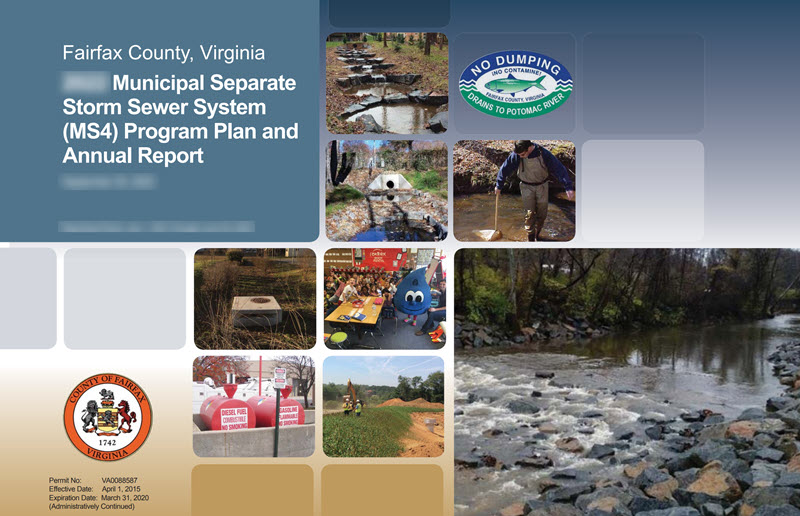
Activities and collective efforts in support of the mission of effective stormwater control include:
- Defining a strategic plan for comprehensive stormwater management.
- Developing watershed management plans.
- Implementing water quality and quantity control practices.
- Conducting inspection and maintenance programs for stormwater control systems and structures to ensure their effectiveness.
- Conducting stream monitoring and evaluation programs.
- Providing technical support to residents and developers.
- Sharing resources and information for the purposes of educating residents and developing strategies to promote good water quality improvement practices.
Permit and TMDL Action Plans
Fairfax County's MS4 permit is mandated by the Clean Water Act and by Environmental Protection Agency stormwater regulations. The Virginia Department of Environmental Quality administers MS4 permits as part of the Virginia Stormwater Management Program permit program. The permit covers the jurisdictional land area of Fairfax County, excluding the Towns of Clifton, Vienna, and Herndon; the Cities of Fairfax and Falls Church; Fort Belvoir; Dulles International Airport; and the Virginia Department of Transportation's road system.
The maximum amount of a pollutant a waterbody can receive while still meeting water quality standards is referred to as the Total Maximum Daily Load (TMDL). The TMDL is a comprehensive pollution diet for an impaired waterway. While DEQ develops the TMDLs, the county’s MS4 permit requires the development of an action plan to describe the process that will be used to achieve specific pollutant reductions through a stormwater management program.
Permit and Annual Reports
- Previous Reports
- 2024 Program Plan and Annual Report
For more information about the county's MS4 permit, or to request archived documents, please contact the Stormwater Planning Division by email at swpdmail@fairfaxcounty.gov or call 703-324-5500, TTY 711.

